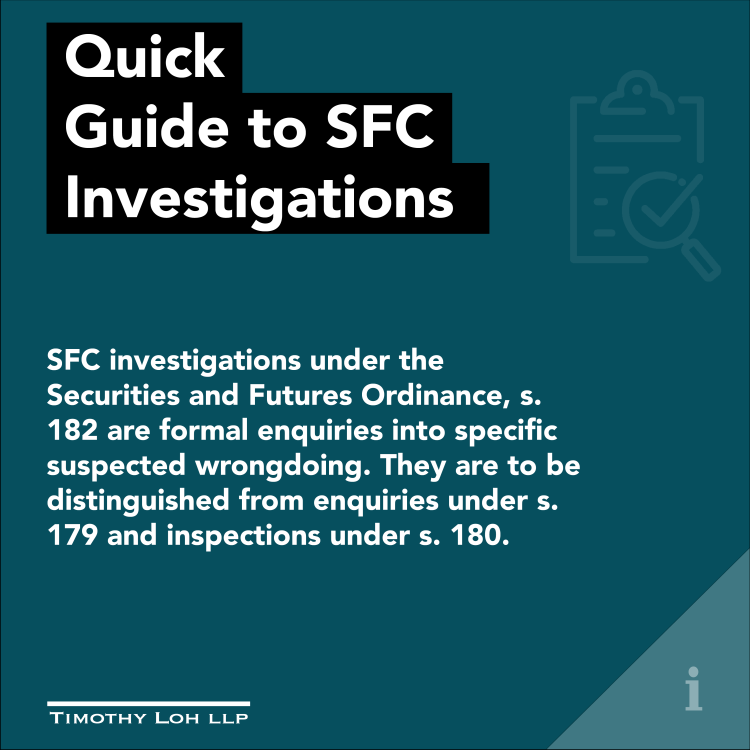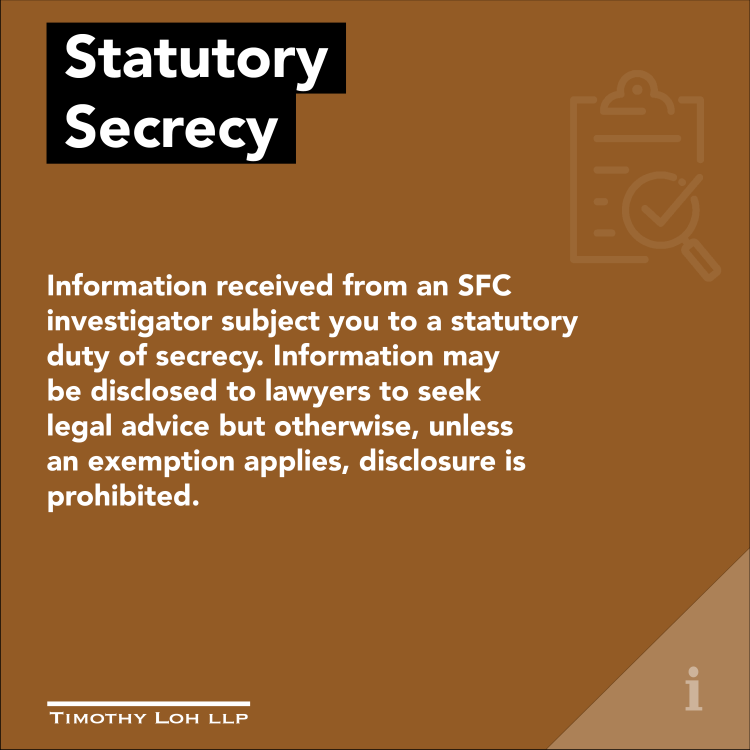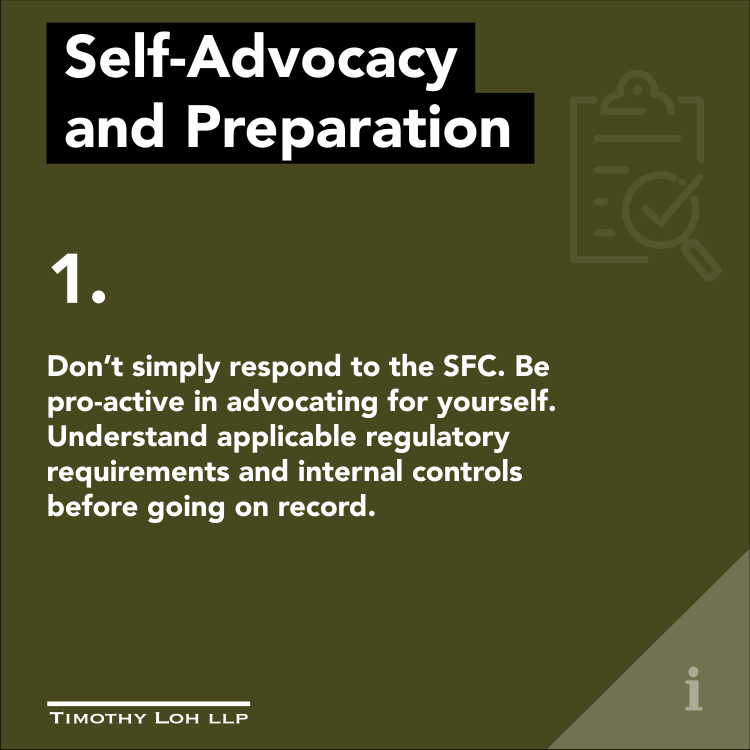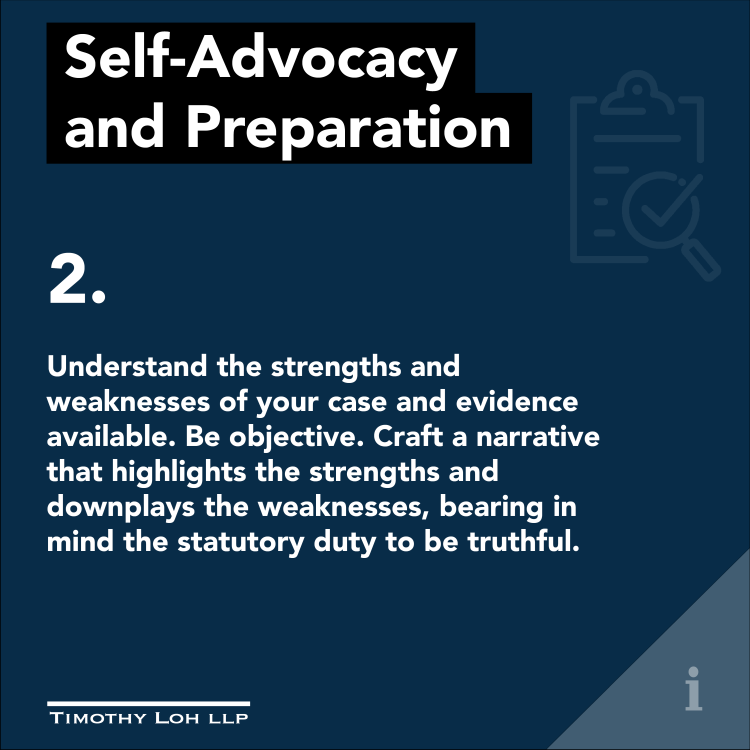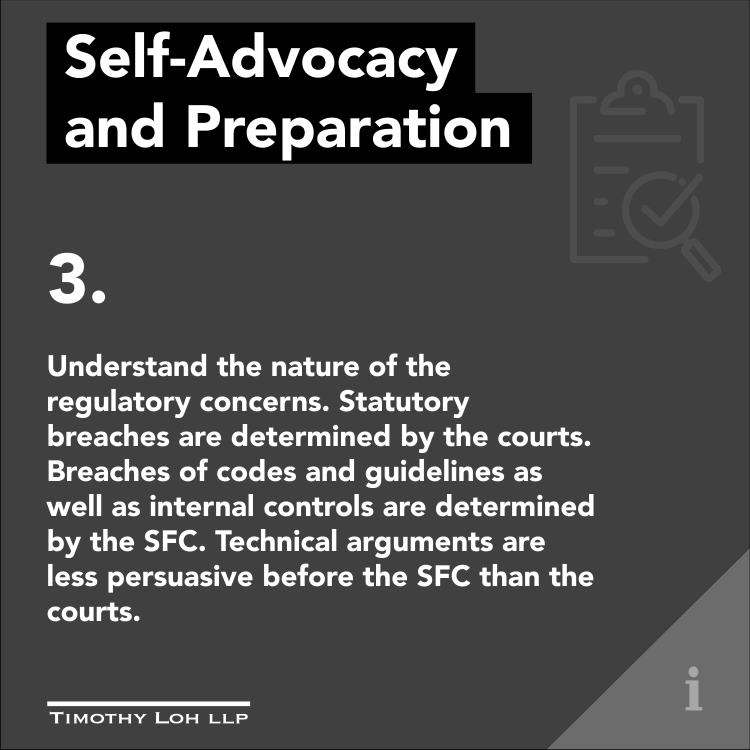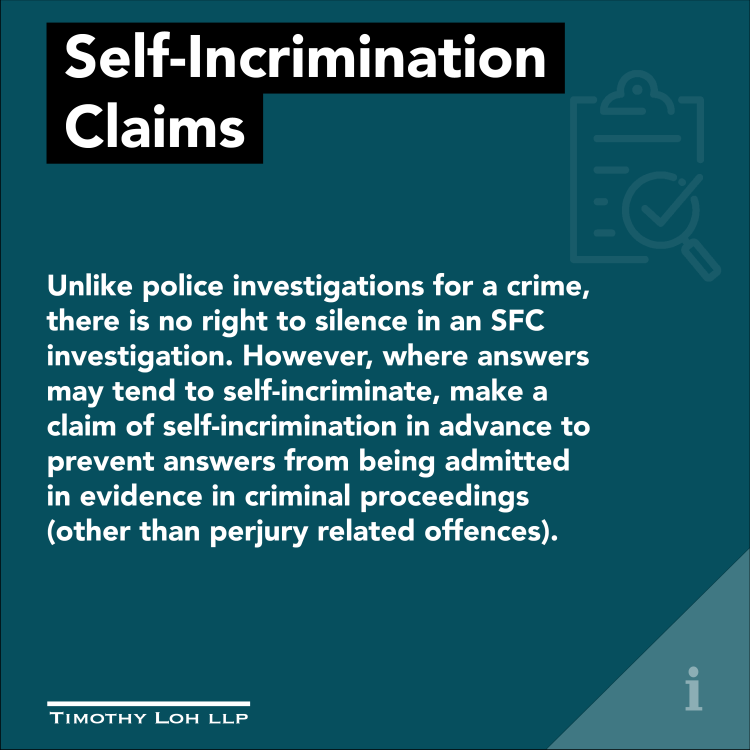Text Version
Quick Guide to SFC Investigations
SFC investigations under the Securities and Futures Ordinance, s. 182 are formal enquiries into specific suspected wrongdoing. They are to be distinguished from enquiries under s. 179 and inspections under s. 180.
Statutory Secrecy
Information received from an SFC investigator subject you to a statutory duty of secrecy. Information may be disclosed to lawyers to seek legal advice but otherwise, unless an exemption applies, disclosure is prohibited.
Self-Advocacy and Preparation
1. Don’t simply respond to the SFC. Be pro-active in advocating for yourself. Understand applicable regulatory requirements and internal controls before going on record.
2. Understand the strengths and weaknesses of your case and evidence available. Be objective. Craft a narrative that highlights the strengths and downplays the weaknesses, bearing in mind the statutory duty to be truthful.
3. Understand the nature of the regulatory concerns. Statutory breaches are determined by the courts. Breaches of codes and guidelines as well as internal controls are determined by the SFC. Technical arguments are less persuasive before the SFC than the courts.
Self-Incrimination Claims
Unlike police investigations for a crime, there is no right to silence in an SFC investigation. However, where answers may tend to self-incriminate, make a claim of self-incrimination in advance to prevent answers from being admitted in evidence in criminal proceedings (other than perjury related offences).

